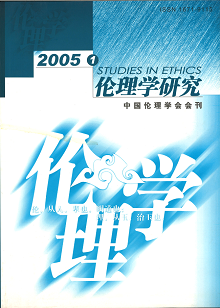|
|
Information Ethics Being a Normative Discipline
Lü Yaohuai
2005(1):
68-71.
There are two kinds of orientations of research in the realm of infor mation ethics . Some scholars take information ethics as a non-standard ethics , and others focus on the standard for information conducts . As a standard-orien ted theory , information ethics should research ethical problems caused by condu cts of different type and it is not a container that can contains computer ethics , media ethics , bioinformation ethics , cyberethics , and so on . Standard-oriented information ethics can refer to Deontologism , Consequentialism and Virtue ethics , and has a comprehensive utilization of means from different discipline . Information ethics must be localized in any country , but we should integrate different information ethics in the process of global communication.
|



